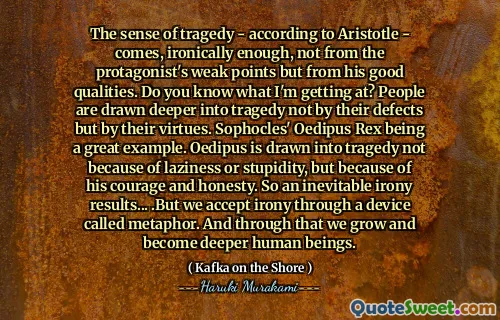Listen up-there's no war that will end all wars,' Crow tells me. 'War breeds war. Lapping up the blood shed by violence, feeding on wounded flesh. War is a perfect, self-contained being. You need to know that.
In Haruki Murakami's "Kafka on the Shore," the character Crow expresses a grim reality about the nature of war. He suggests that wars are cyclical and perpetuate further conflict rather than leading to lasting peace. This bleak perspective implies that violence inherently sustains itself, creating an endless cycle of suffering and brutality.
Crow’s statement highlights the idea that war is a self-sustaining phenomenon that thrives on the aftermath of its own destruction. He points out that rather than resulting in a utopian world free from conflict, wars feed off the pain and wounds they create, reinforcing the notion that humanity struggles perpetually with these violent impulses.






